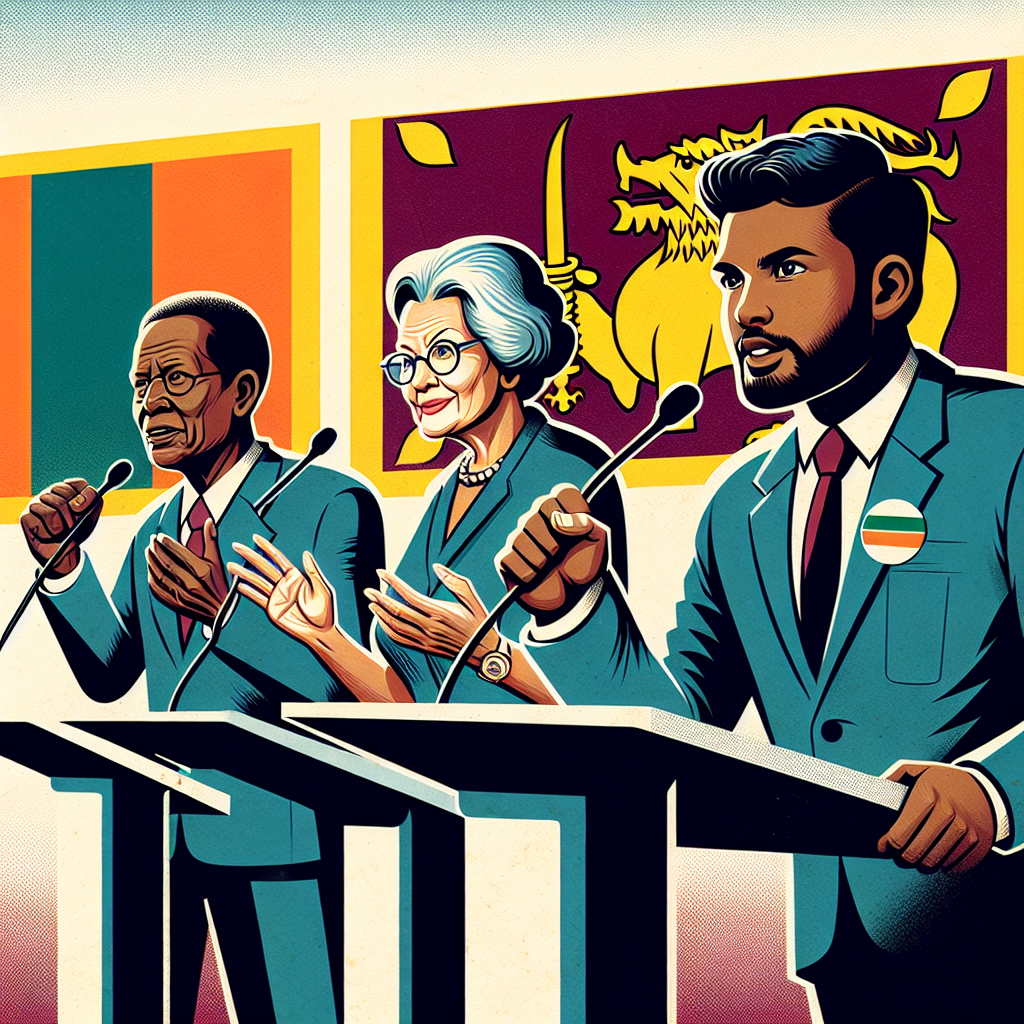The upcoming presidential election in Sri Lanka is shaping up to be a contest between the established political elite and a leftist organization that has undergone significant transformation, once known for its involvement in armed uprisings. Candidates are competing for the position of overseeing an economy that is in need of significant reforms.
While the incumbent, Ranil Wickremesinghe, has engaged in agreements with the International Monetary Fund to support the nation’s recovery following a debt default, his chances of winning are not guaranteed due to his controversial austerity measures that have made him unpopular. Alongside facing challenges from other prominent politicians, Wickremesinghe also faces competition from Anura Kumara Dissanayake of the leftist Janatha Vimukthi Peramuna, a party with a history of insurgency movements that has recently gained support based on an anti-corruption platform.
The election on September 21st will be critical for Sri Lanka as the country emerges from a severe economic crisis. Following a historic debt default and high inflation rates, which led to widespread protests in 2022 and the resignation of strongman leader Gotabaya Rajapaksa, the presidential candidates are gearing up for a competitive race.
Recent opinion surveys suggest the possibility of a run-off election, a scenario that has not occurred since 1982. With 39 candidates now nominated to contest the poll, the main contenders vying for the top position include Ranil Wickremesinghe, Namal Rajapaksa, Anura Kumara Dissanayake, and Sajith Premadasa.
Each candidate brings a unique background and platform to the race. Wickremesinghe, despite facing criticism for his austerity measures, has brokered important financial agreements and reinstated law and order. Namal Rajapaksa, the son of former president Mahinda Rajapaksa, is focusing on attracting young voters and promoting development projects. Anura Kumara Dissanayake, known as AKD, has gained popularity for his anti-corruption stance and ability to appeal to a broad section of society. Sajith Premadasa, coming from a political dynasty, aims to review the terms of the IMF bailout and reduce taxes to address rising living costs.
The outcome of the presidential election in Sri Lanka will have significant implications for the country’s future trajectory, as candidates navigate complex economic and political challenges in their bid for leadership.


